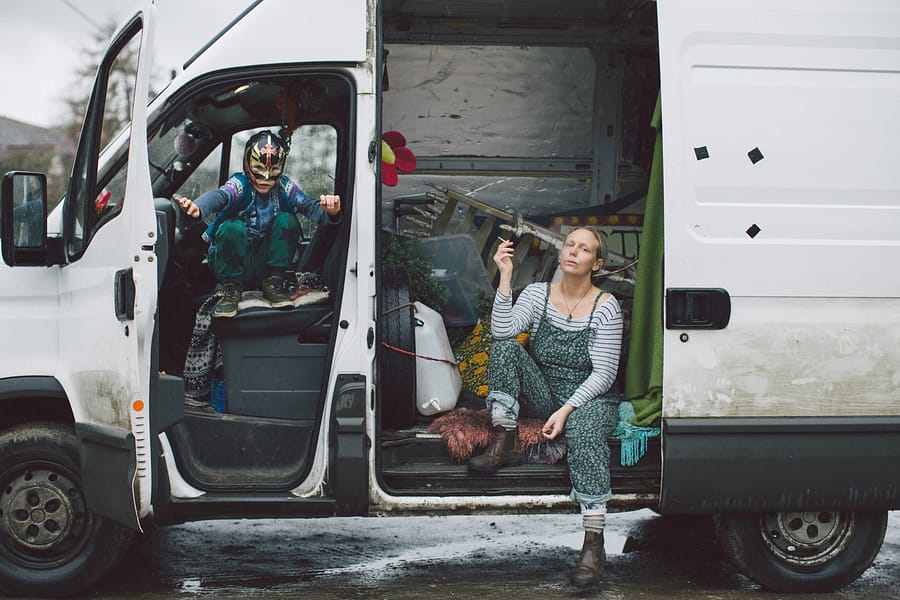
Rid The Pulpit // ©Polly Alderton
Photographer
Polly Alderton
The Story behind the Portrait
This portrait was taken for a long-term project of mine called Rid The Pulpit. It shows my dear friend Emily and her youngest boy and was used in the book Invisible Britain; Portraits of Hope and Resilience edited by Paul Sng.
I’d agreed to submit an image for the book and the deadline was fast approaching. I’d spent the weekend at Emily’s setting up shots and trying to style out something that looked ‘cool’. We’d spent a lot of time talking as usual and preparing for the spoken interview that we also had to do.
That weekend we got fixed on the topic of ‘opportunity’. Growing up low-down or in a working-class home(s) and discussing the opportunities that were available to us. Emily left school well before 16 and it never occurred to her when she heard people talking about sixth form, college, or university that it was something she could do. A ‘career’ wasn’t something that applied to her either. There was no jealousy or resentment about it, she simply never thought to tune into a conversation about it. She assumed her place was to ‘sit this one out’ or frankly, that it was for the other kids.
That weekend, she talked about raising her children and the opportunities she wants for them, how her main focus is that they assume every opportunity is meant for them and that they take it as if it was always theirs.
Back to the image. After the weekend I came home and developed the pictures I’d taken. Nothing really felt right and they seemed too ‘contrived’ (I mean, they *were* too contrived!) But I felt heavy after that weekend of talking and dissecting childhood with Emily, one of our most common links has been the mirrored childhoods we lived. I really needed to shut down. I decided to pull out of contributing to the book with one day left to submit. My partner, Robin, thankfully made a fat song and dance about it and insisted on driving me round to Emily’s that day in his lunch break. We had an hour to get a shot and if it was still no good, then I could pull out.
I spoke on the phone to Emily and we drove over. As I walked up to her I could see she felt the same, we’d gone too far talking that weekend and she was jaded from it too. She was pale and we didn’t really talk, she was emptying her van for an upcoming festival so I photographed her sitting smoking, her look to camera was direct. In this time, her son Mags was playing about, going from the back to the front of the van. I just wasn’t feeling it, the snow from the weekend had gone, it was raining and grey and I was frustrated about the whole thing. Then Mags swung open the passenger door and I thought ‘ah -that was cool’. I got him to redo the image a few times, jumping from the seat, standing, jumping again. The composition in the latter shots was better but I chose to stick with this first one in the end. It felt symbiotic, it held threads of what we’d talked about that weekend – this kid throwing himself into the picture and being totally unapologetic about it.
Emily left school well before 16 and it never occurred to her when she heard people talking about sixth form, college, or university that it was something she could do. A ‘career’ wasn’t something that applied to her either.
Bio
Polly Alderton is a British documentary photographer living in Essex.
Website and Social
Instagram dollyandfife & polly_alderton
